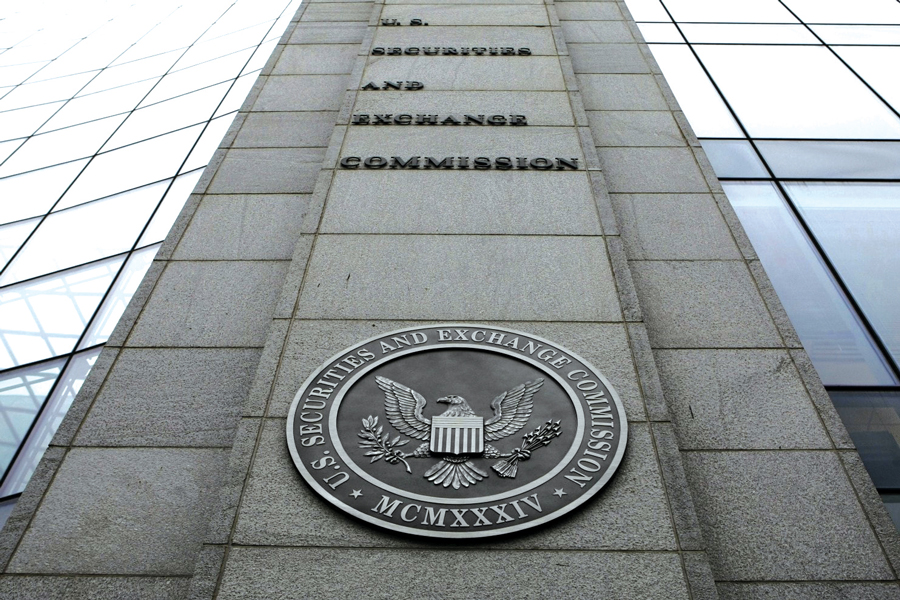

The Securities and Exchange Commission on Monday ordered 27 financial firms to pay a total of $910,092 in penalties in the first enforcement actions for compliance failures related to the client disclosure document known as Form CRS.
The customer relationship summary outlines a firm’s fees, services and potential conflicts of interest and is supposed to help clients and customers decide whether to do business with a firm.
The document was created as part of the regulatory package whose centerpiece was Regulation Best Interest, the broker investment advice standard that went into force June 30, 2020.
Both investment advisory firms and brokerages had to file Form CRS with the SEC and prospective or new retail clients by that date. They had to file the document with existing clients by July 30, 2020, and also post it on their websites.
In its orders, the SEC found that 21 investment advisers and six broker-dealers failed to meet their Form CRS deadlines. They did not deliver or post the documents until they were reminded twice by their respective regulators, the SEC for advisers and the Financial Industry Regulatory Authority Inc. for brokers.
The SEC levied fines on the 27 firms that ranged from $10,000 to $97,523 each. None of the firms admitted nor denied the SEC’s findings.
The case was announced on the first day in office for new SEC enforcement director Gurbir S. Grewal.
“Registration with the SEC as an investment adviser or broker-dealer comes with mandated filing and disclosure obligations,” Grewal said in a statement. “Today’s cases reinforce the importance of meeting those obligations and providing retail investors with information that is intended to help them understand their relationships with their securities industry professionals.”
Form CRS is meant to work in tandem with Reg BI.
“Form CRS is intended to provide retail investors with a brief summary about the services a firm offers, its fees, conflicts of interest and other information that can help investors make more informed choices,” Adam S. Aderton, co-chief of the SEC Enforcement Division’s Asset Management Unit, said in a statement. “By failing to file, deliver, and post this form, these firms deprived their clients and customers of the benefits of that information.”
The SEC has been finding compliance shortcomings related to Form CRS. Last October, the agency warned firms not to omit disciplinary history from the document. Last July, the agency said it was finding Form CRS form and content problems.
The SEC maintained the June 30, 2020, implementation deadline for Reg BI and Form CRS despite the ongoing pandemic. Initially, it said it was looking for “good faith” compliance efforts from brokers and advisers. But since the beginning of this year, it has gotten tougher in its reviews.
Monday’s enforcement cases were the first related to Form CRS. The SEC has not yet announced an enforcement action related to Reg BI.
Grewal joined the SEC after serving as attorney general in New Jersey, where he championed the state’s fiduciary rule, which was promulgated as an alternative to Reg BI. The New Jersey rule has not been finalized.

By listening for what truly matters and where clients want to make a difference, advisors can avoid politics and help build more personal strategies.

JPMorgan and RBC have also welcomed ex-UBS advisors in Texas, while Steward Partners and SpirePoint make new additions in the Sun Belt.

Counsel representing Lisa Cook argued the president's pattern of publicly blasting the Fed calls the foundation for her firing into question.

The two firms violated the Advisers Act and Reg BI by making misleading statements and failing to disclose conflicts to retail and retirement plan investors, according to the regulator.

Elsewhere, two breakaway teams from Morgan Stanley and Merrill unite to form a $2 billion RIA, while a Texas-based independent merges with a Bay Area advisory practice.
Orion's Tom Wilson on delivering coordinated, high-touch service in a world where returns alone no longer set you apart.
Barely a decade old, registered index-linked annuities have quickly surged in popularity, thanks to their unique blend of protection and growth potential—an appealing option for investors looking to chart a steadier course through today's choppy market waters, says Myles Lambert, Brighthouse Financial.
